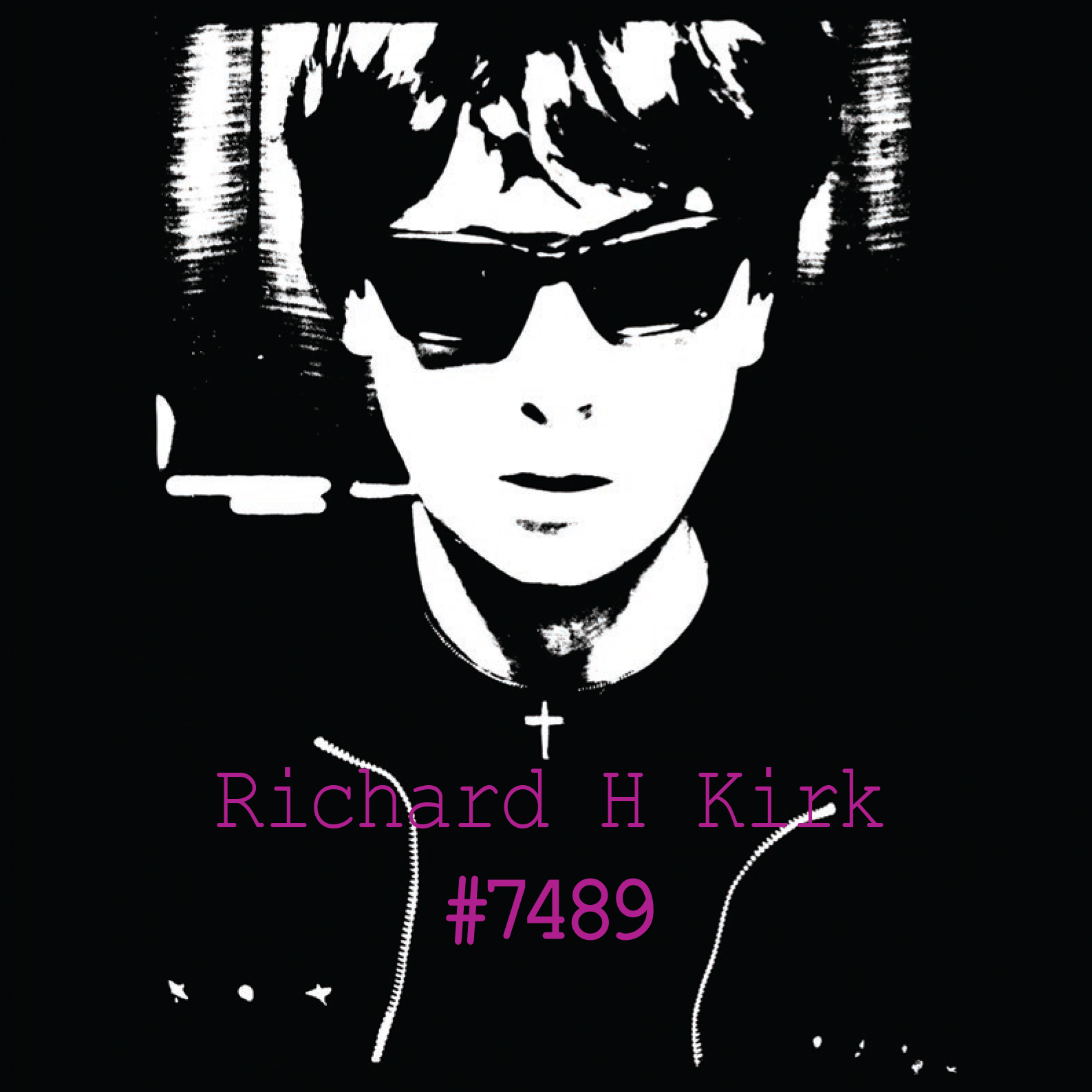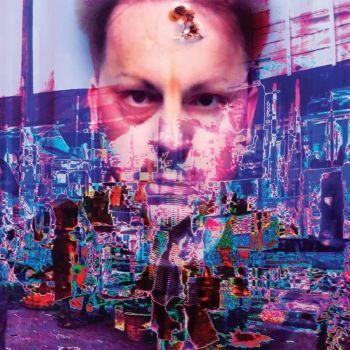Richard H. Kirk #7489 (Collected Works 1974–1989) and Sandoz #9294 (Collected Works 1992–1994)
A pair of massive retrospectives shed more light on the serpentine discography of Richard H. Kirk.

Richard H. Kirk’s four-decade-plus career hasn’t exactly followed a steady, straightforward path. Beginning in the mid-’70s with solo releases under the U.K. artist’s own name, through his work as part of the groundbreaking combo Cabaret Voltaire, to his output under the Sandoz moniker—not to mention his dizzying array of alternate aliases and collaborations—he’s wandered through an aural landscape that ranges in vibe from abrasively postindustrial (befitting his roots in gritty Sheffield) to beguilingly sleek, and in emotion from hushed melancholy to spit-in-your-face anger. He can be brazenly experimental; he’s also capable of producing music that, at least on its surface, is a soothing listen. Social and political commentaries—occasionally direct, more often oblique—weave their way in and out if his music, often in the form of well-chosen vocal samples or through Kirk’s own close-miked voice.
In short, it’s going to take more than one retrospective to convey a sense of his wide-ranging palette. Mute Records has already provided an invaluable service by rereleasing a cornucopia of Cabaret Voltaire’s seminal machine funk; now, the label adds a few more Kirk snapshots with the duel release of Richard H. Kirk – #7489 (Collected Works 1974–1989) and Sandoz – #9294 (Collected Works 1992–1994), with the two collections showcasing two very different corners of his discography.
Richard H. Kirk – #7489 (Collected Works 1974–1989) is an embarrassment of riches for people already familiar with his work, and an eye-opener for those who might know him only through Cabaret Voltaire’s better-known cuts like “Yashar” and “Sensoria.” The set cycles through 1980’s Disposable Half Truths, the newly remastered Times High Fiction (a 1983 release compiling work from ’79 to ’82), Black Jesus Voice and Ugly Spirit (both released in ’86), the double-disc Earlier/Later (Anthology 74-89), and Super Duper Soul, featuring unreleased recordings from ’82 through ’88. It’s a labyrinthine anthology—but to simplify things considerably, it delineates a range that begins with piercing, often brittle intensity and leads to somewhere approaching the dancefloor.
His solo releases include some of the most tension-filled material of Kirk’s career, even taking into account the unhinged experimentation of Cabaret Voltaire’s mid-’70s output. Like that groundbreaking material, there’s a heavy industrial tinge to the music, but here, it’s often paired with a kinetic skronk that’s reminiscent of NYC’s no-wave movement. Frazzled blasts of sound blast through the chaotic miasma of “Martyrs of Palestine,” a distorted voice shrieking the song’s title while a hyperkinetic drum machine churns away; the tick-tocking “False Erotic Love” layers vocal loops over swooning feedback, creating an aura of bleak anxiety. But there are hushed moments as well, even in his earliest releases: “Insect Friends of Allah,” for instance, pairs droning Middle Eastern vibes and a gentle, modulated beatbox rhythm to meditative effect. On the other hand, “Do as I Do” sees Kirk stepping into the club, as he layers purposefully inane vocal samples (“the planet Earth is blue, blue, blue!”) over synth-horn blasts and a kinetic four-to-the-floor beat.
That’s a hint of what’s to come on Sandoz – #9294 (Collected Works 1992–1994), which collates material from the two-CD comp Digital Lifeforms (Redux), the sought-after Intensely Radioactive and Dark Continent LPs (both remastered) and an album of previously unreleased material, Sandoz Runs The Voodoo Down. Another embarrassment of riches, albeit one that’s more tightly focused than #7489, it’s a collection of what Mute describes as “the melding of African sounds with European electronic music.”

If that description sounds like a roundabout way of saying “house,” you’re not far off the mark, and many of these tracks wouldn’t sound out of place in a DJ mix from, say, Black Coffee or Henrik Schwarz. The hard-charging “Zombie Astral” layers chirping trumpet and flute lines over percolating percussion; a kalimba-esque melody provides counterpoint for the buoyant bassline of “Ocean Reflection”; songs like “Exoskeleton” are imbued with the ghostly remnants of Jamaican rhythms; and “Neon Soul” with its Latin-laced keyboards and “all right” vocal snippet, could almost pass for a classic Strictly Rhythm track. Some might miss the dystopian charms of Kirk’s (or Cabaret Voltaire’s) solo releases—but these cuts, ranging in feel from meditative to jacking and from otherworldly to carnal, will be a revelation for those unfamiliar with Sandoz’s oeuvre.
Even with the nine-hours worth of material on these two compilations, there’s still plenty of Kirk material to be mined—there’s his work with Richard Barratt in the pioneering bleep-techno duo Sweet Exorcist, for instance, or the beautiful ambience of his Orchestra Terrestrial side project. But just taking these two box sets into account, along with the previously released Cabaret Voltaire material, Mute’s provided a valuable service: we’ve become reacquainted with one of electronic music’s most essential artists, and have been reminded of the depth and breadth of his talents.

